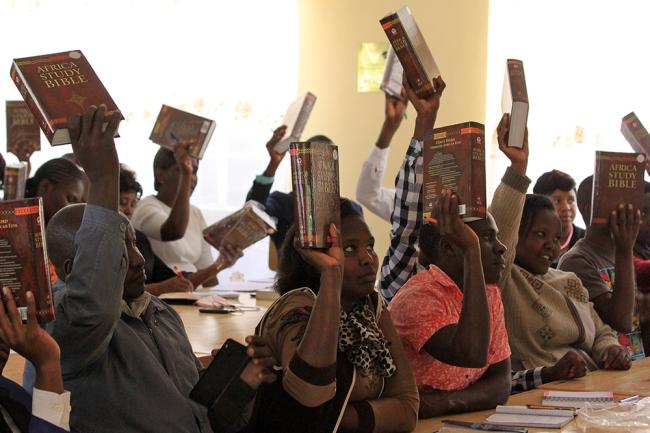
Wycliffe Global Alliance has published its 2024 Global Scripture Access Report, unveiling the latest status of Bible accessibility worldwide.
The annual report is compiled using data from the Alliance’s partner organizations, including SIL International, the United Bible Societies, and others. This year’s figures are accurate as of September 2023. Referencing SIL International’s Ethnologue, the report compares global languages and populations with Bible availability. Currently, there are approximately 7,396 known languages spoken by an estimated 7.45 billion people worldwide.
756 Language Groups Have Access to the Entire Bible
According to the report, 756 language groups now have access to the entire Bible, covering approximately 6 billion people—20 more languages than in 2023. Additionally, 1,726 language groups have access to the New Testament, reaching 835 million people, reflecting an increase of 68 languages over the previous year. Furthermore, 1,274 language groups have portions of the Bible available, covering 468 million people. These numbers have all seen growth compared to 2023.
The report also notes a decrease in the number of languages still needing Bible translation. This figure now stands at 985, down by 283 from 2023. These languages are spread across Africa, the Americas, Asia, Europe, and the Pacific, with Asia having the greatest need—382 languages requiring translation, representing a population of approximately 22.48 million.
Wycliffe’s Role in Bible Translation in 2024
Globally, Bible translation efforts are underway in 3,526 languages across 173 countries. Wycliffe International Alliance agencies are involved in translation work in at least 3,146 of these languages in 146 countries. Over the years, Alliance agencies have contributed to the translation of the New Testament or entire Bible in at least 1,895 languages, and portions of the Bible in another 871 languages.
The Alliance notes that while the report strives to present accurate key figures, tracking Bible access is inherently complex. The need for Bible translation depends not only on whether a language group already has Scripture but also on whether they require additional texts or revisions. Additionally, improvements in data collection and definitions over time make year-to-year comparisons challenging.
New Methods to Measure Bible Translation Progress
The report highlights that while these statistics offer a perspective on global Bible translation progress, the ultimate significance lies in people encountering God through His Word. It also emphasizes the growing unity within the global Bible translation movement in Christ.
Wycliffe Global Alliance stated it will continue exploring other important indicators to measure Bible translation progress. These include the transformative impact of Scripture on language communities, the increasing role of churches in translation work, and enhanced collaboration among churches, communities, and organizations to share the responsibility for translation.














